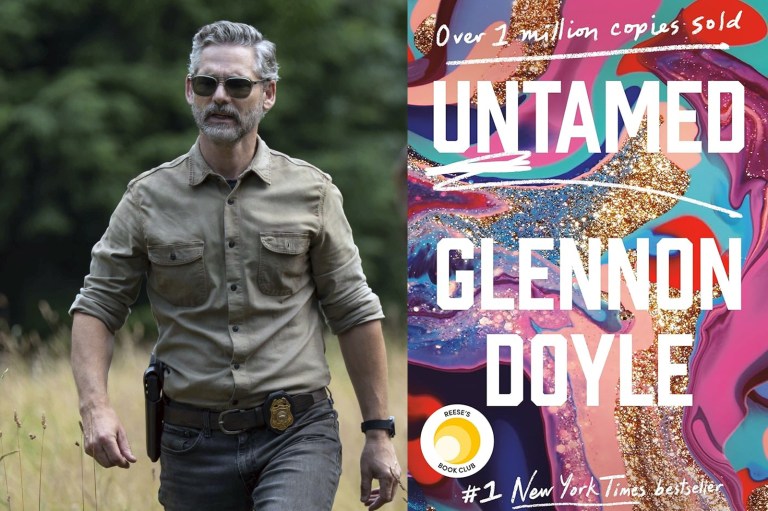
The 4 Stages Of Dating A Narcissist
Remember, we’re drawn to these types of relationships because they’re familiar and comfortable; they feed our dysfunctions.
Trigger warning: Toxic relationships
At 22 years old, I was smart, beautiful, and charming. I graduated top of my college class and made tons of loyal friends. I had created an impressive, internship-loaded resume, and I recently returned from teaching English at a school in Spain. After moving downtown to an up-and-coming city, I began excitedly pouring myself into my first full-time professional job. And then I met Josh.
When Josh and I first met at our co-work space, I barely noticed him. He seemed like just another starry-eyed entrepreneur, obsessed with comics, anime, and superheroes. But Josh was best friends with my new boss and hung around quite a bit. After helping me with some software tools I needed, he became curious. Josh asked about my dad — which seemed odd — and why I always wore pretty dresses. As the conversation deepened, I realized we were both self-improvement nerds, and I felt a spark.
Soon after, Josh asked me to hang out for our first date, thus beginning the roller-coaster-like relationship that led me to a scary depression. Little did I know, Josh was not only narcissistic but also had an avoidant attachment style. I tended towards an anxious attachment style and had no idea what any of this was. We were heading for a double-jeopardy, textbook, “toxic relationship,” and it felt so good… until it didn’t.
Part 1: He “love-bombs” me.
Though our earliest intimate encounters were a bit rocky, Josh soon learned all my sensitive spots and techniques that excited me. Within a few weeks, we were having the most exhilarating, satisfying, and oh-god-is-he-killing-her? screaming sex I had ever had.
Our emotional connection felt thrilling. Josh seemed captivated by every detail of my personality, and I felt like we were in our own “cool kids” club. We lit up about the same books, shared a quirky sense of humor, and spent countless hours together. We made inside jokes during work, went for spontaneous adventures, had long cuddle sessions, and talked about everything.
His romantic gestures were thoughtful and so personal. Since we both loved electronic music, Josh decided to create a playlist for me and sent a new song daily, determined to match my taste just right. He surprised me at my off-site work spots, sometimes by tracking me — which I didn’t fully understand, but I felt flattered. He learned to recognize each of my laughs and micro-facial expressions like a private game.
To top it off, He often told me how beautiful I was and would always be. He even read all of my published writing, complimented me, and said he loved seeing how I think. I felt hooked.
Months flew by, and Josh quickly became the person who knew me the best. He understood my fullest potential, and I felt like he was the one, more than any past partners. I never wanted this breath-taking relationship to end.
Part 2: He belittles me.
Slowly the energy started to shift, and between romantic gestures, small yellow flags made me question his affections.
Once we were out getting coffee, we ran into one of his clients, and he didn’t introduce me. The slip didn’t seem like a big deal, but I felt hurt. Why doesn’t he want to include me? Does he not think I’m smart enough? He must have forgotten.
When we had plans to hang out, he started running late, sometimes hours, with infrequent and vague text updates. A few times, he canceled altogether and said he had too much work or something with his family had come up. I tried to be understanding, but I felt rejected. Wouldn’t he make time for me if I was more important to him? Or at least keep me more in the loop? I’m probably overthinking this.
Then, he’d show up and be charming. He’d give me a back massage while asking how my day was, and we’d end up back in my bed having mind-altering, screaming sex. He’s so great. Why would I doubt him?
After a few more times of feeling rejected, I made the difficult decision to break up with him. I cried a lot, and he held me. Maybe we were lovers in a past life, but the relationship felt too hard with his ongoing distractions.
Then the cycle started. Josh slowly made his way back into my life, persuading me he had changed, that he finally fixed that thing that bothered me, and he wanted to make us work. I desperately wanted to believe him.
Part 3: My self-worth dissolves.
Attachment Theory 101: avoid anxious-avoidant dynamics. If you tend towards anxious attachment, stay away from avoidant types. Experts call this dynamic a “trap” because for anxious-insecure people, the activation energy alters your brain and you grow addicted to the “highs.”
The next few months were full of laughable breakups and reunions. The highs felt so high, and the lows were utterly devastating. Were there more lows than highs now? But this has to work. He’s the best thing that ever happened to me. Maybe I need to prove myself more.
I broke up with him again and again, he crept back into my life. Josh once meditated for hours on the hill by my house, waiting for me to show up. He’s so spiritual and wise. I can work harder to make us work. I can be better.
More and more, I began to doubt myself and question my self-worth. Maybe I deserve this. I can be stupid and slutty, and I should feel lucky to have Josh. He’s so smart and successful, and he understands me.
The put-downs and yellow flags grew worse and weirder. One day he asked me for my computer password during sex. Wait, what? I rolled my eyes and laughed it off because he’d been asking for a while. Maybe it was flattering that he wanted to know me better. He started hanging out with my female housemate and best friend, and I grew secretly jealous.
Meanwhile, I began debating a significant career shift, and I made a list of ideas for what I would do next, including things like a sex therapist, an English teacher, and a playboy mansion bunny (mostly for laughs). I was excited to share the list with him, but when he looked at it, he commented, “The only thing you’re at all qualified for is the playboy mansion bunny.” What a wild thing to say! At the time, it hurt. I had become so desensitized that I reasoned he was accurate. I felt tiny. That was Valentine’s Day.
Eventually, I grew incredibly depressed. I didn’t like or know me very much anymore. I had reached an unforgettably low point in life, wondering whether anything was worth it anymore.
Part 4: I rebuild my self-worth without him.
Thank god I got out. I did hook up with a few rebound partners and had a few slide back conversations with Josh, but I got out.
Piece by piece, I rebuilt my self-worth. I sold my car and started biking to work every day, carefully avoiding Josh. Then, I ended up quitting my job and went on a few road trips over the summer.
Without the awareness of the soul-crushing narcissistic abuse that just happened, I did what I knew how to: pour into self-improvement. Here are some steps that helped:
Prioritize self-care: I made green smoothies in the morning, drank green tea, lifted weights, biked 12 miles every day, and ate healthy foods.
Connect with new groups: I found environmental activist groups in the city, went to events, and volunteered to help with sustainability projects.
Get creative: I started a blog and was determined to post every day about the books I read and positivity.
Nourish your spirit: I got into meditation, went for hikes, and read philosophical books, i.e., Eckhart Tolle’s The Power of Now, Marcus Aurelius’ Meditations, and Herman Hesse’s Siddartha.
Take space at all costs: After a significant soul-searching trip to Florida, I decided to move to California. I moved partially to create more space away from Josh, who kept showing up at my favorite spots. I needed a new city and adventure.
Start new projects: I decided to pursue a new career in technology as a user experience professional. I took out loans, signed up for a boot camp, and moved to California with two suitcases.
Closing thoughts
These damaging, dysfunctional relationships are real and more common than we’d like to imagine. Through narcissist support groups, I’ve met dozens of women and a few men who are ending 20+-year relationships with narcissists. Their lives are far more complicated, with decades of intertwined lives and shared children. I feel lucky to have discovered the cycle so early on.
It’s been four years since I moved to California, and I have done the work to heal: read the books, worked through the trauma with my therapist, taken space from dating, and reconnected to my authentic self. Though I still feel my heart flutter around emotionally unavailable men, I know activation energy is not real love.
Being clear about where toxic relationships lead, the telltale signs, and what healthy romance looks like has saved me from more significant heartache. Some books I recommend:
The Wizard of Oz and Other Narcissists by Eleanor Payson
Attached: The New Science of Adult Attachment and How It Can Help You Find — and Keep — Love by Amir Levine
The Covert Passive-Aggressive Narcissist by Debbie Mirza
Rising Strong by Brene Brown
Remember, we’re drawn to these types of relationships because they’re familiar and comfortable; they feed our dysfunctions. The best thing you can do is to take space, share your concerns with people outside of the relationship, and prioritize your needs. If someone you care about is in this type of relationship, please share your concerns and let him or her know you’ll be there for them.
You are worthy of someone who honors you, respects you, encourages you, and is a cheerleader for your dreams and ambitions. The right partner will roll out the red carpet for you and always treat you like someone special because you are. They’ll be concerned when you feel hurt and value your vulnerability.
More than anything else, you can trust your feelings. If something feels off, it probably is.
By sharing our stories, we can heal and empathize with each other. We release the shame and hate. Like Amanda Palmer said, “If you don’t deal with your demons, they go into the cellar of your soul and lift weights.”
Though we are not responsible for what happens to us, we can control how we respond, and we can walk away as more resilient, more aware, more loving, kinder, and more self-compassionate humans.
*Names were changed for privacy reasons.*











